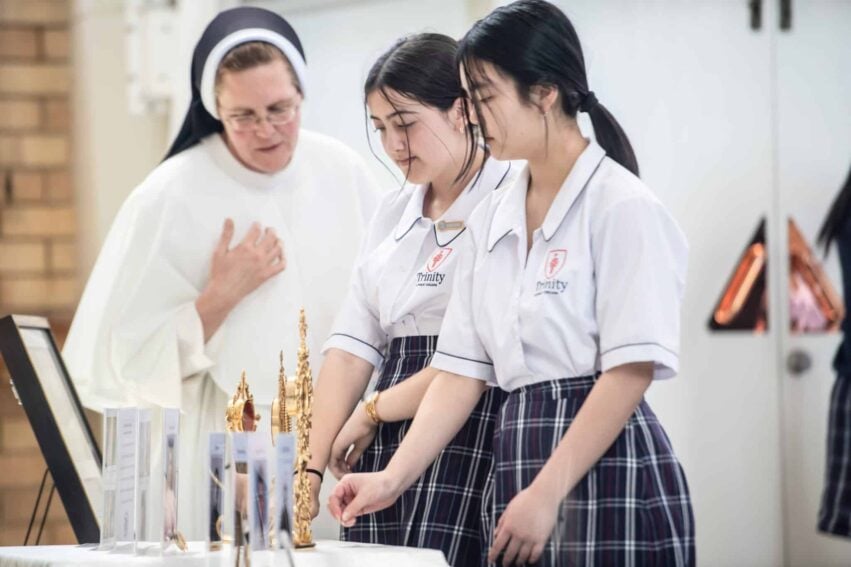
As a religious and educator in Australia, the approaching feasts of St Dominic (3 August) and St Mary of the Cross (8 August) provide annual opportunities for rejoicing and renewal. What might this man, aptly given titles such as “teacher of truth” and “most zealous for the salvation of souls” say to us today, especially those in Catholic education?
The late Pope Benedict XVI, in speaking of this great saint remarked, “St Dominic reminds us that in the heart of the church, a missionary fire must always burn.” But Dominic hardly made it beyond his own backyard in preaching the Gospel!
We too have opportunities close to home to be missionaries in sharing truth, goodness, and beauty. I remember teaching a Year 7 religion class and we were discussing a favourite topic for this age group: eschatology.
At the end of the lesson, one student came up to ask, “Sister, can you remind me which one is the good place, heaven or hell?” Right in my own backyard! As we celebrate the feast of St. Dominic we can ask ourselves, “Does a missionary fire burn in my heart?”
Dominic’s world was plagued by deep confusion. Convincing messengers spread the errors of the Albigensian heresy, persuading anyone who would listen to abandon long-held truths, casting reason out the window.
The dignity of the human person, and the goodness of marriage, human sexuality, and the family were some targets of their campaign. Less-than-inspiring examples of holiness amongst the clergy and religious did not help win the faithful back to the reasonableness of truth.
While the Albigensians may be gone, our world today suffers the plague of relativism. Mainstream and social media messengers negate truth so as not to offend. Secular powers set themselves up as the arbitrators of good and evil, of right and wrong. We see their deadly effects of “playing God” on our young people: apathy, anxiety, depression, anger, hopelessness. What is one to do?
Jesus told us in the Gospel of St John, “You will know the truth and the truth will make you free” (10:10). Dominic’s mission of Veritas (Truth) is needed today as much as it was during his time. Our schools, which are to be communities of formation for the whole person, must be vigilant to guard against these errors that infiltrate modern thinking, literature, and syllabuses. In her teaching on Catholic education, the church tells us that,
“The formational experience of the Catholic school constitutes an impressive barrier against the influence of a widespread mentality that leads young people especially ‘to consider themselves and their lives as a series of sensations to be experienced rather than as a work to be accomplished’. At the same time, it contributes to ensuring strong character formation capable both of resisting the debilitating influence of relativism and of living up to the demands made on them by their Baptism” (Educating Together in Catholic Schools, 42).
Returning to my backyard, I am finding that, of all places, the morning and afternoon car line is often the place that provokes deep questions! As I stand there welcoming students to school or sending them home, children of varying ages will ask questions about life and faith: Is my body God’s or is it mine? How can there be evil if God is good? How do I know what God wants me to do with my life?
It is clear they are trying to integrate school life with home life. We must, as Dominic did, intentionally form students, staff, and parents in all that is true, good, and beautiful. What is the result of this formation in faith and learning? Disciples who are examples of prayer and holiness, who can boldly proclaim truth with charity, engaging in sincere dialogue with those who would agree or disagree. And the ultimate goal is the salvation of souls, starting with our own. St Dominic, pray for us!
